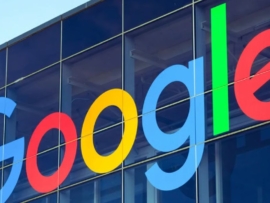
Google is reportedly allowing European app developers to direct their users to payment options outside of the Play Store for in-app purchases. To recoup the lost revenue from these transactions, the company is also introducing a new tiered fee system.
These Play Store changes are being implemented to appease European regulators, who demand that Google comply with the region’s Digital Markets Act (DMA), according to Bloomberg. The legislation requires that app developers be allowed to freely steer their customers toward purchasing options outside of the app marketplace, such as their own website or third-party app stores, which may be cheaper or otherwise more advantageous.
In March, the European Commission found that the Play Store prevents app developers from directing consumers to alternative purchasing channels, limiting their ability to offer better deals outside of Google’s platform. This was not a formal charge or a fine, but could lead to such a punishment if Google doesn’t make any changes.
The Play Store overhaul will be implemented across 30 European nations, according to Bloomberg. The new fee structure reduces Google’s “initial acquisition fee,” the amount developers pay for Google Play’s role in helping their app acquire a new user, from 10% to 3% of in-app purchase transactions. However, the tiered fee system will introduce new charges to cover Google’s operational expenses.
Fines for noncompliance with the DMA can be up to 10% of the company’s total worldwide turnover, rising to 20% in cases of repeated infringement. So far, only Apple (€500 million) and Meta (€200 million) have received penalties.
Google says that external purchase options pose a security threat
Google contends that allowing external purchase options may expose users to security risks that are otherwise mitigated within the secure Play ecosystem.
Clare Kelly, Google’s senior counsel for Competition in EMEA, told Bloomberg: “While we still have concerns that these changes could expose Android users to harmful content and make the app experience worse, we’re updating our External Offers Program for the EU with revised fees and more options for Android developers.”
EU has also accused Apple of making external purchase options difficult and costly for developers
The Commission has accused Apple of similar tactics.
In January 2024, just before the deadline for DMA compliance, Apple introduced new business terms that meant app developers could steer users to alternative purchase options through “link-outs,” where an in-app link directs the user to a web page to complete the transaction.
However, because Apple takes a commission from link-outs and any developer who wants to use them must pay the “Core Technology Fee” for each first app install over a certain threshold, the EU said the option was not free of charge and therefore did not satisfy the DMA’s requirements. Apple was formally charged last summer and, this April, was fined €500 million for its continued infractions, which the company is appealing.
Google’s ‘steering’ practices are also an issue for the EU
Back in March, on top of the issues with external payment options, the Commission also found that the way Alphabet, Google’s parent company, presents Google Search results may steer customers toward Google services, such as Shopping, Flights, or Hotels. Both were looked into as part of an investigation into non-compliance with the DMA that opened in March 2024.
Google has made a series of changes over the last year to comply with the DMA, such as temporarily removing some Search Widgets and rejigging the layout of Search results. But the Commission has determined that these steps are insufficient.
Google has accrued more than €8 billion in fines from the EU since 2017
Google has received three fines from the Commission for antitrust violations, totalling over €8 billion:
- €2.42 billion in 2017 for favouring its own comparison shopping service, Google Shopping, in search results
- €4.125 billion in 2022 for pre-installing Google Search into Android devices. This was a reduction of the original €4.34 fine in 2018.
- €1.49 billion in 2019 for imposing restrictive ad contracts on third-party websites using its AdSense platform.
Some other cases are ongoing. In June 2023, the Commission published its preliminary view that Google had breached EU antitrust rules by favouring its own ad exchange and other ad tech tools. It said that a “mandatory divestment” of part of its ad tech business would be the only way to address its own competition concerns.
The UK’s Competition and Markets Authority came to a similar conclusion in September 2024, but both bodies are still investigating.
Google was fined for abusing its dominance by pre-installing Google Search into Android devices in 2018. In June, its appeal faced a major setback.
Source of Article



